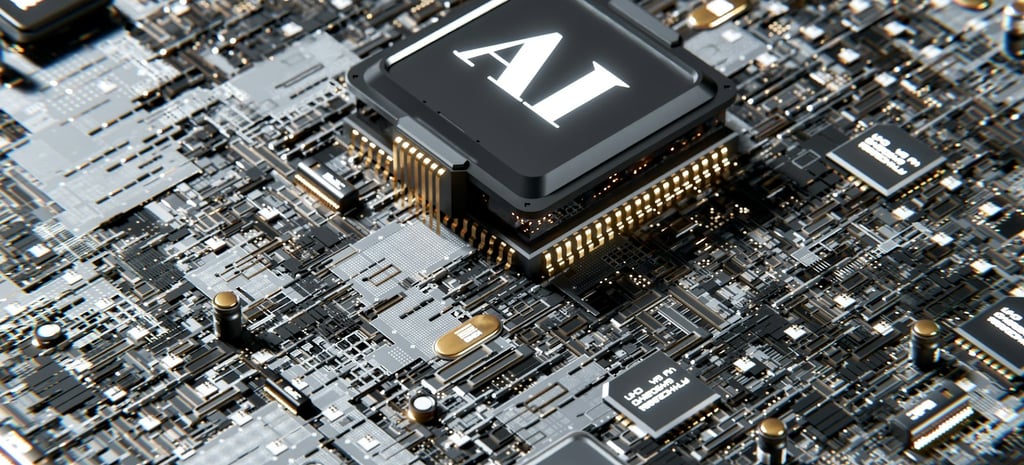Illinois AI Regulation 2025 – How the Prairie State is Shaping the Future of Artificial Intelligence
Learn about Illinois AI Regulation 2025, key laws, business impacts, and ethical guidelines. Stay updated on how the state is leading in responsible AI governance.
TECH
8/8/20254 min read
Learn about Illinois AI Regulation 2025, new laws, business impacts, and ethical guidelines. Stay informed on how Illinois is leading in responsible AI governance.
Introduction – A Landmark Year for AI Policy
The year 2025 has become a turning point for technology governance in Illinois. As artificial intelligence continues to integrate into everyday life, the state has stepped forward with a new set of rules designed to ensure that innovation happens responsibly. The Illinois AI Regulation Act 2025 has already become one of the most talked-about legislative moves of the year, drawing attention from tech companies, policymakers, and the general public.
This law is not just a bureaucratic document. It reflects a growing concern over how AI affects privacy, employment, education, and even basic human rights. From the streets of Chicago to small towns across the state, the conversation about artificial intelligence is no longer limited to tech insiders. Now, it is a matter of public interest.
The Key Objectives of Illinois AI Regulation 2025
The main goal of the new regulation is to strike a balance between technological growth and ethical responsibility. While Illinois wants to encourage AI-driven innovation, it also wants to protect its citizens from unintended consequences.
Key objectives include:
Protecting personal data from being misused by AI systems.
Ensuring transparency in algorithms used for decision-making in hiring, healthcare, and law enforcement.
Preventing bias in AI models that could lead to discrimination.
Setting guidelines for AI use in public services like education, transportation, and emergency management.
How the Law Impacts Businesses
Businesses in Illinois that rely on artificial intelligence now have to follow strict guidelines for transparency and accountability. Companies using AI for hiring must ensure their systems do not discriminate against applicants based on race, gender, or age.
Healthcare providers must disclose when AI tools are used to make diagnoses or treatment recommendations. Retailers using AI to track consumer behavior must provide clear notices to customers and allow them to opt out.
While some business leaders worry about compliance costs, others see the new rules as an opportunity to build trust with customers. Transparent AI practices can actually strengthen a company’s brand and credibility.
Impact on Education and Research
Illinois is home to major research institutions and universities that are at the forefront of AI development. The new regulation encourages responsible research practices, including mandatory bias testing for AI models before they are deployed in real-world applications.
Educational institutions are also expected to teach ethical AI development as part of their computer science programs. The aim is to create a future workforce that understands both the technical and moral implications of AI.
AI in Public Safety and Law Enforcement
One of the most controversial aspects of AI regulation is its use in policing. Illinois has now set clear rules for facial recognition technology and predictive policing tools. Law enforcement agencies must be transparent about how they use these systems and must submit to regular audits.
Supporters believe this will help prevent misuse of technology, while critics argue that it could slow down crime prevention efforts. Regardless of the debate, Illinois has made it clear that public safety should never come at the cost of civil liberties.
Ethical AI Guidelines
A major section of the regulation focuses on ethical AI use. This includes:
Avoiding the use of AI for manipulative political campaigns.
Banning AI-generated deepfakes without clear labeling.
Ensuring that AI chatbots and assistants disclose that they are not human.
By making these rules explicit, Illinois hopes to reduce the risk of misinformation and protect citizens from deceptive technology.
Voices from the Public and Industry
Public opinion on the regulation is mixed. Many Illinois residents welcome the law, believing it will keep AI from becoming a tool for exploitation. Civil rights groups have praised the state for being proactive instead of reactive.
On the other hand, some tech companies worry that the added regulations could drive innovation elsewhere. They fear that startups might choose states with fewer rules to avoid compliance costs.
However, Illinois lawmakers argue that long-term growth depends on public trust. By creating a safe and transparent environment for AI, they believe they are laying the foundation for sustainable innovation.
Illinois as a Model for Other States
Illinois is not alone in tackling AI regulation, but it is among the first states to pass such comprehensive rules in 2025. Other states are watching closely to see how the law plays out in practice.
If successful, Illinois could become a national model for AI governance, influencing future policies in California, New York, and beyond.
Preparing for the Future of AI
The passage of the Illinois AI Regulation Act 2025 is only the beginning. Technology evolves quickly, and lawmakers acknowledge that they will need to update the rules regularly. Committees have already been formed to review AI developments every year and make necessary adjustments.
For citizens, the message is clear: AI is here to stay, but it will be governed in a way that respects privacy, fairness, and safety.
Conclusion – A Responsible Path Forward
Illinois has taken a bold step in shaping the future of artificial intelligence. By balancing innovation with ethics, the state is proving that technology does not have to come at the cost of human values.
Whether you are a tech developer in Chicago, a small business owner in Springfield, or a student learning about AI in Urbana, the new regulations will affect how you interact with this powerful technology.
The Illinois AI Regulation 2025 is more than just a law—it is a statement that the state is ready to lead the nation in responsible AI governance.

